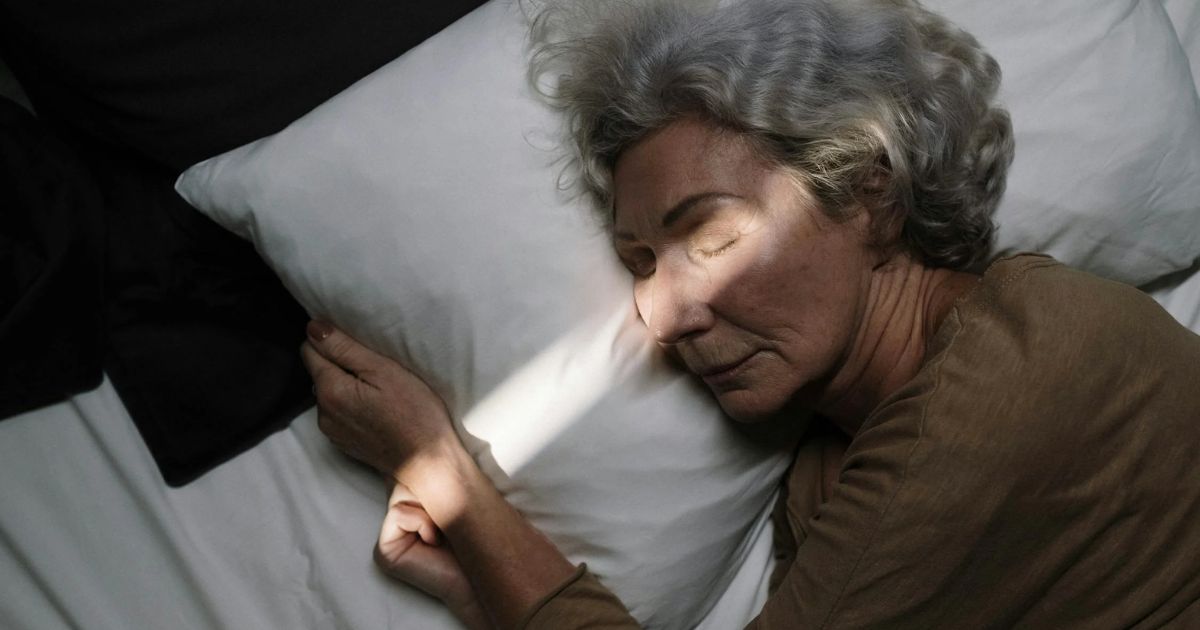Some recent findings underscore a sign that might suggest cognitive troubles, especially for middle-aged men. A study in The Lancet showed that if you have “distressing dreams” or nightmares a lot at night, you could be up to four times more likely to deal with dementia as you get older.
This information comes from a long-term study of over 3,000 people, which suggests that not sleeping well might be more than just annoying. It could be your brain’s way of giving you a heads-up about some serious issues ahead.
When the study started, the research team studied 605 middle-aged folks and 2,600 older adults who were all sharp as a tack. They found that having frequent nightmares is a strong connection to both your brain not working as well as it used to and getting dementia in general.
It’s worrying that these unsettling dreams didn’t just raise the risk of dementia in older folks by two times. They boosted it by four times for those in their mid-life who had them weekly. Interestingly, the findings held up strong even when considering other things that could affect the results, like stress or feeling down.
This could mean that we’ll soon have better ways to spot signs of dementia early on and maybe do something about it before it’s too late. But this bump in risk only showed up in men. Scientists are wondering if something about the way men’s brains age makes them more sensitive to the effects of these kinds of dreams.
Are Nightmares A Neurological Canary?
The connection between nasty dreams and brain issues hasn’t just popped up; this new study puts it in the spotlight. As the Alzheimer’s Society points out, folks in the early days of dementia, particularly those with a condition called REM sleep behavior disorder (RBD), tend to act out their dreams in a very real way. It can get spooky at times.
Imagine someone thrashing around, shouting, or even landing on the floor because they’ve rolled out of bed. It’s as if their dreams are playing out right before their eyes. Except they’re asleep! This unusual behavior during sleep (aka RBD) can be a real giveaway that something is not quite right.
Lewy body dementia is PD plus dementia.
It is associated with very vivid,
detailed hallucinations. REM sleep disorder (i.e., acting out dreams) is prominent because the normal motor paralysis of REM sleep is lost in Lewy body dementia. These patients shout and move and even jump…— Conrad Fischer (@SeeFisch) May 14, 2025
RBD often shows up a few years before Parkinson’s disease and Lewy body dementia. The NHS suggests that wonky sleep patterns are a symptom of Lewy body dementia, so these dreams might be your brain’s subtle way of raising a red flag.
We all have those nights when we get tossing and turning with weird dreams, but it’s worth considering if it’s happening like clockwork. It’s like your brain is trying to send you a message.
And males pushing 40 or who have hit 50, keep an ear to the ground on this one.
Dementia Prevention, Diagnosis, and Your Sleep
So, what should you do if bad dreams plague you? While a single nightmare isn’t cause for panic, frequent, emotionally charged dreams (especially those involving fear or violence) may warrant a conversation with your doctor. Sleep studies or cognitive assessments catch early changes that conventional check-ups might miss.
Poor sleep has been linked to the development of dementia and Alzheimer’s disease, and now a new study suggests a possible reason why. https://t.co/jPV9Nbjdai pic.twitter.com/HwTV1YVJeL
— WebMD (@WebMD) January 10, 2020
The bottom line is: don’t sleep on the importance of your Zs. Pun intended.
Research has found that keeping an eye on your dream patterns might be a low-cost, easy way to spot early signs of dementia years before you’d usually notice anything’s off. Getting a heads-up could help determine who might be at risk and jumpstart some early tactics to keep their brains sharp.
We can’t promise you’ll never face brain fog as you age, but acting early can make a difference. If we catch it sooner, we can tweak our lifestyle or start treatments that could prevent the fog from rolling in.













